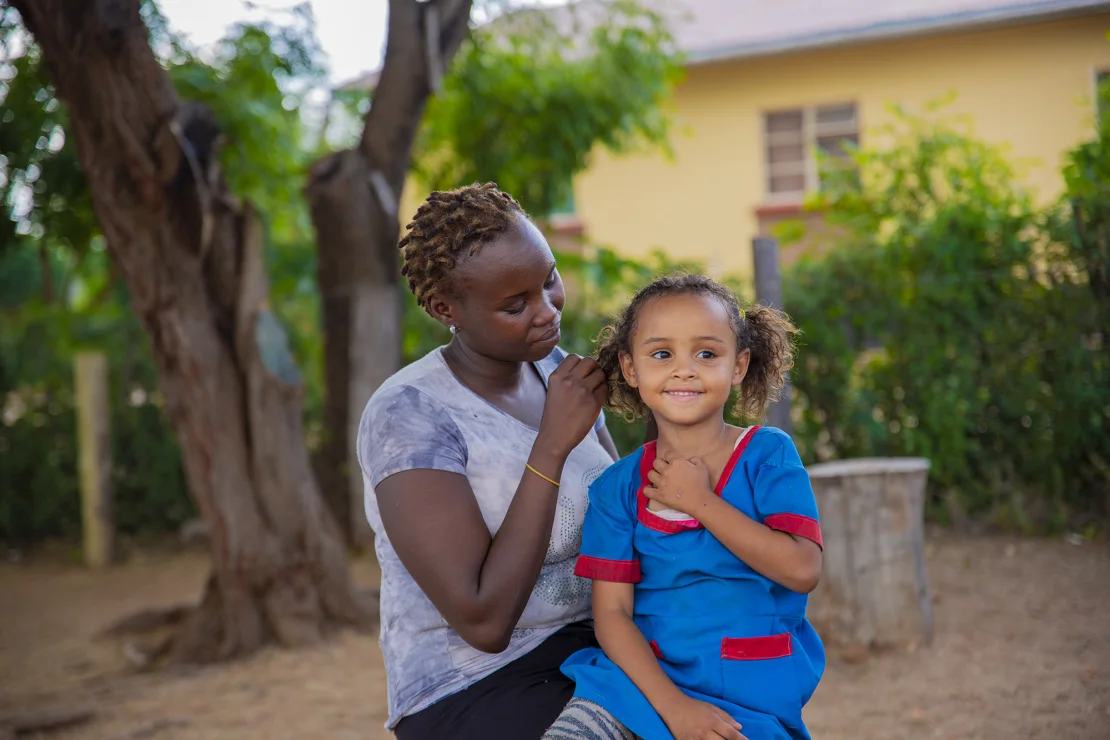Seventeen-year-old Marian Pannalossy cuts a striking figure wherever she goes in Archer’s Post, a small town 200 miles north of Nairobi. She lives alone and is light-skinned in a place where mixed-race people are a rarity and therefore ostracized.
“They call me ‘mzungu maskini,’ or a poor white girl,” she told CNN at her single-room house, a tremor in her voice. “They always say ‘Why are you here? Just look for connections so that you can go to your own people. You don’t belong here. You’re not supposed to be here suffering.’”
Marian believes that her father was a British soldier, but she has never met him. She does not even know his name.
Marian is among a group of mixed-race children whose mothers say they were conceived after rape by British soldiers training in Kenya. Her mother, Lydia Juma, was among hundreds of Kenyan women who filed complaints with the UK military over the years, as documented by Kenya’s human rights body.
“I don’t know why God is punishing me. I don’t understand,” Juma said through tears in a powerful 2011 documentary, ‘The Rape of the Samburu Women.’
Marian, aged four at the time, sat on her lap, sometimes hugging her mother as she wept and recounted how she was violated and the suffering she had endured since.
Juma’s live-in boyfriend, with whom she had two older children, left her after she gave birth to Marian, a mixed-race child, because rape is a taboo in their culture. “The moment he saw that the child is ‘white,’ he went, and he went forever,” she said in the film.
Abandoned children
Kenyan women say they continue to struggle for recognition even for children conceived in consensual relationships with British soldiers.
Generica Namoru, 28, says she started a consensual relationship in 2017 with a soldier while she worked at the BATUK headquarters in Nanyuki.
“He went back to the UK when I was two months pregnant. He is the one that chose her name when she was born,” she told CNN.
Namoru says the soldier sent his passport and other personal information for the newborn’s birth certificate. Her daughter Nicole, five, bears his last name, she told CNN, but he has never supported her. Namoru is unemployed and has to “hustle” for her and Nicole’s upkeep by selling fresh water in the semi-arid town where they live.
“I’m a woman with a ‘white’ child. It’s not easy for my family especially because a child is expensive,” she said, pointing out that Nicole has no health insurance nor a permanent home. “She’s suffering for no reason. I want him to take care of her education, health and shelter. Nothing else.”
In the meantime, Kabui the lawyer and his team have set up a crowdfunding campaign to support Marian, Nicole, and other “abandoned children of British Army soldiers in Kenya with education and legal fees,” he told CNN.
Namoru says that she has tried without success to get the Kenyan or British governments to locate her ex-boyfriend and compel him to take financial responsibility for his daughter.
The British High Commission in Nairobi told CNN that it cooperates with local child support authorities in paternity claims. Neither Nicole nor Marian have UK citizenship even though they qualify if they can prove their fathers are English.
“It’s not like these kids are looking for a free ticket to the UK. We’re just saying that they deserve to get parental care from their fathers that every child deserves,” Mutugi of the Human Rights Commission said, claiming that the British government had shown no interest in resolving the cases.
“These children deserve British citizenship. They’re British kids. Their fathers were British!” Mutugi said.
